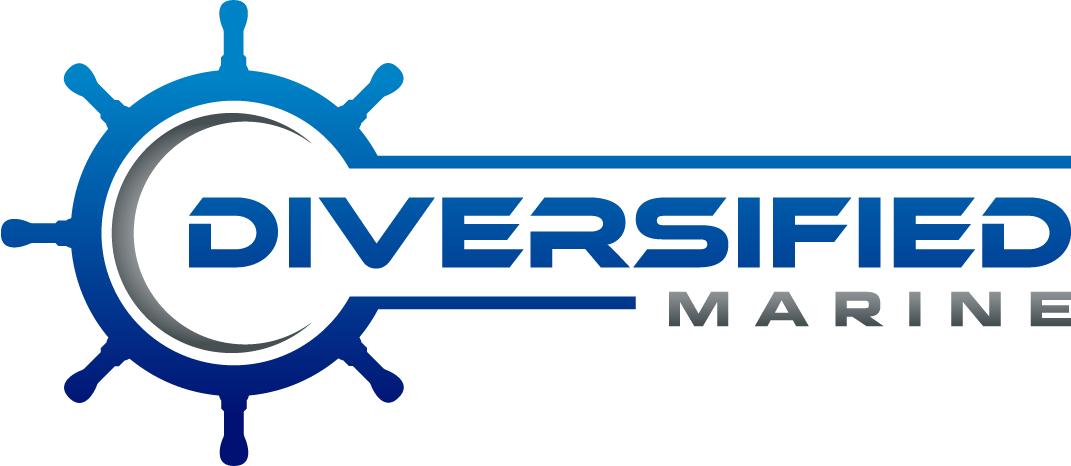Seaworthy Solutions: A Blueprint for Sustainable Boat Maintenance
- Diversified Marine
- Dec 2, 2024
- 4 min read
Ownership of a boat brings countless joys—from serene sunsets on the water to exhilarating weekends of adventure. However, it also comes with significant responsibilities, especially when it comes to reducing your environmental footprint. Traditional boat maintenance often involves chemical-heavy processes, excessive resource use, and waste generation—all of which can harm marine ecosystems.
Sustainable boat maintenance offers an alternative that preserves the health of our oceans while ensuring your vessel remains in top condition. This guide will walk you through the environmental impacts of conventional methods, practical steps for eco-friendly maintenance, and inspiring real-world examples of the marine industry's move toward sustainability.
The Environmental Impact of Traditional vs. Sustainable Practices
Traditional Maintenance and its Toll on Marine Ecosystems
Conventional boat upkeep often involves harmful chemical cleaners, antifouling paints with toxic biocides, and inefficient resource use. When rinsed or spilled into the water, these substances can:
Contaminate marine habitats.
Harm aquatic life, such as fish and corals.
Disrupt ecosystems by introducing toxins into the food chain.
Additionally, traditional maintenance generates considerable waste—plastic packaging from cleaning products, leftover materials, and old parts improperly disposed of—that can persist in the environment for centuries.
Why Sustainable Practices Matter
On the other hand, sustainable boat maintenance practices aim to:
Minimize harmful runoff and emissions.
Conserve resources like water and electricity.
Promote the use of biodegradable and non-toxic materials.
By adopting these methods, boat owners and marine professionals can actively contribute to the preservation of oceans for future generations.
Essential Tools and Materials for Eco-Friendly Maintenance
Before jumping into eco-friendly upkeep, you’ll need the right tools and products. Here's what to stock your dock with:
Biodegradable Cleaners
Replace harsh chemicals with products specifically labeled as marine-safe and biodegradable. Look for certifications to verify these claims.
Non-Toxic Antifouling Paints
Seek eco-friendlier paints that reduce biofouling without releasing biocides into the water.
Reusable Cleaning Tools
Swap out single-use wipes and plastics for microfiber cloths, natural sponges, and durable brushes.
Environmentally-Friendly Lubricants
Invest in low-toxicity, biodegradable engine oils and lubricants.
Solar Panels for Onboard Energy
If you're looking to go beyond maintenance, consider solar panels as a renewable energy source for your boat's systems.
Step-by-Step Guide to Sustainable Boat Cleaning
Cleaning your boat is a routine task, but it can leave a major environmental impact if not done thoughtfully. Here’s how to do it sustainably:
Choose the Right Location
Always clean your boat on dry land—preferably in designated wash-down areas equipped with runoff filtration systems. This prevents contaminated water from entering oceans or lakes.
Rinse with Freshwater First
Remove loose dirt and debris with a hose to limit the amount of soap or cleaning agent you'll need.
Use Biodegradable Soap
Scrub surfaces with marine-safe detergents that won’t harm aquatic creatures. A small amount goes a long way.
Opt for Natural Brushes
Use soft, eco-friendly bristles to minimize scratching and pollution.
Dispose of Rags and Residues Properly
Collect all cleaning residues and dispose of them according to local waste management regulations.
Tips for Energy-Efficient Engine Maintenance
Engines are one of the greatest contributors to a boat’s environmental impact. Proper maintenance practices not only extend their lifespan but also reduce emissions and fuel consumption.
Perform Routine Inspections
Schedule regular tune-ups to ensure your engine runs efficiently. A poorly maintained engine burns more fuel and produces higher emissions.
Switch to Recyclable Oil Filters
Use recyclable filters and ensure that spent oil is disposed of at designated recycling facilities.
Invest in Cleaner Fuels
Consider blending biofuels with traditional fuel or exploring electric engine options for a cleaner energy source.
Reduce Idle Time
Train yourself to turn off your engine when it’s not needed, conserving both fuel and the environment.
Best Practices for Reducing Waste and Pollution in Boat Maintenance
Beyond cleaning and mechanical upkeep, there are several ways to minimize waste and prevent pollution:
Buy in Bulk
Purchasing large containers of maintenance products reduces the packaging waste associated with smaller, single-use items.
Repurpose Old Materials
Turn disposable items (like sails or old ropes) into storage bags or protective gear instead of throwing them out.
Install Bilge Filters
A bilge filter prevents oil and other pollutants from leaking into the water each time you pump out your bilge.
Adopt a Recycling Mindset
From used oil to dead batteries, recycling makes a significant difference. Connect with local marinas for guidance on eco-friendly disposal.
Educate Your Crew and Community
Sustainability is a shared effort. Share these best practices with your boating friends and crew to amplify the impact.
Case Studies of Successful Sustainable Maintenance in the Marine Industry
Case Study 1: Greening Marina Services in the Mediterranean
A marina in Spain introduced water filtration systems in its washdown areas, drastically reducing pollutants reaching the sea. Boat owners cited the convenience and peace of mind that came with utilizing sustainable services.
Case Study 2: Eco-Conscious Boats in Australia
Several Australian charter companies now exclusively use eco-friendly cleaning products and low-emission engines for their fleets, setting a new standard for sustainability in the industry.
Case Study 3: Collaborative Clean-Up Events
Marine communities from California to the Caribbean host collaborative clean-up events that teach eco-friendly maintenance practices while actively removing waste from waters and shores. These events build a sense of responsibility and camaraderie among boat owners.
Protecting Our Oceans, One Boat at a Time
Sustainable boat maintenance isn’t just a choice—it’s a commitment to preserving the waterways we all cherish. By implementing eco-friendly practices, you can enjoy a clean, efficient, and environmentally responsible boating experience.
Whether you’re a seasoned sailor or just beginning your marine adventures, adopting sustainable solutions like biodegradable cleaners, energy-efficient engines, and waste-reduction protocols can make a tangible impact on ocean health.
Dive deeper into sustainable practices and champion change within your local marina community. Together, we can ensure that future generations inherit vibrant, thriving seas.

Comments